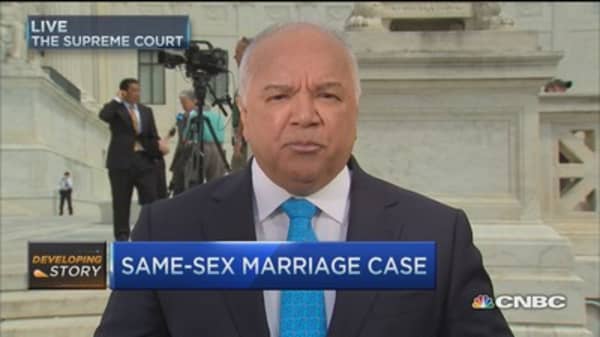This may change the amount of taxes you owe this year, so it is worth checking with a tax advisor about the possible impact on your own tax liability. Those who are legally married on the last day of tax year 2015 generally must use the "married" status when the time comes to file their 2015 tax return.
Employee benefits. Now that same-sex couples can be legally wed in all states, partners have a clear ability to take advantage of spousal benefits, such as employer-sponsored health-care coverage and access to lower-cost life insurance sponsored by an employer.
This is a major step up from previous circumstances, where some employers provided domestic partner benefits, because that benefit was taxed as income to the employee.
Read MoreSupreme Court levels playing field
Traditional health-care coverage for spouses that now applies to all married couples is a tax-free benefit. In addition, if an employee leaves work to care for an ailing spouse under the Family and Medical Leave Act (FMLA), that benefit extends to same-sex married couples.
The change in status has an impact on retirement plans as well. If an individual names somebody other than his or her spouse as a beneficiary of retirement-plan assets, the spouse must consent in writing to that designation. This now applies nationwide to same-sex married couples. In general, these couples will now be eligible to collect survivor benefits from both defined benefit and defined contribution plans through one spouse's workplace.





